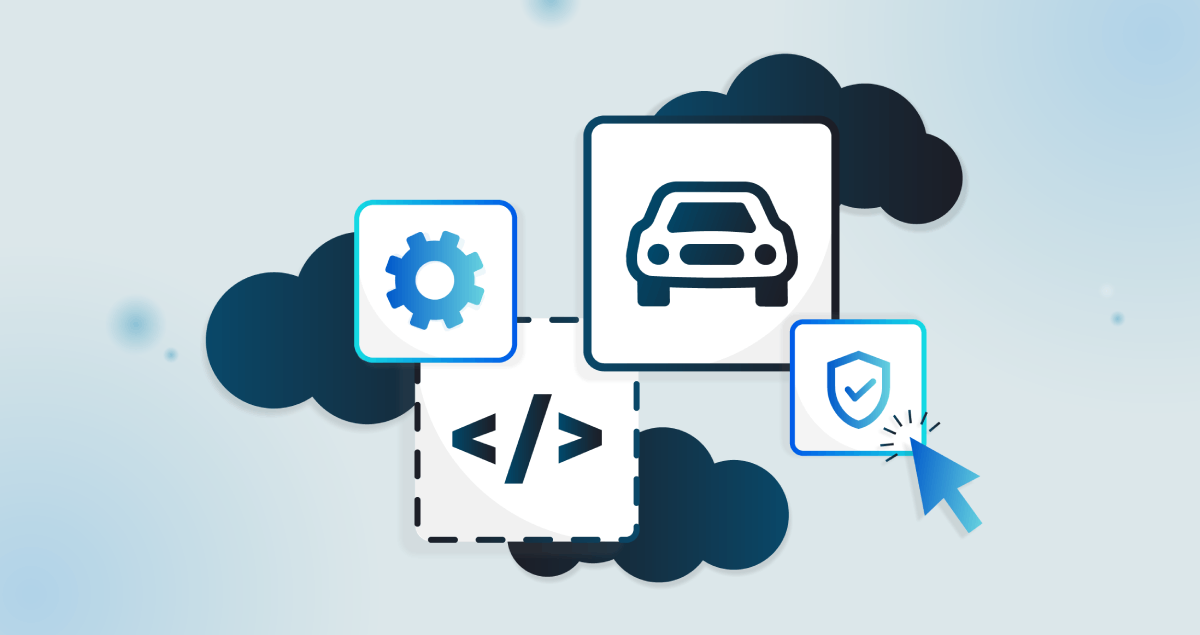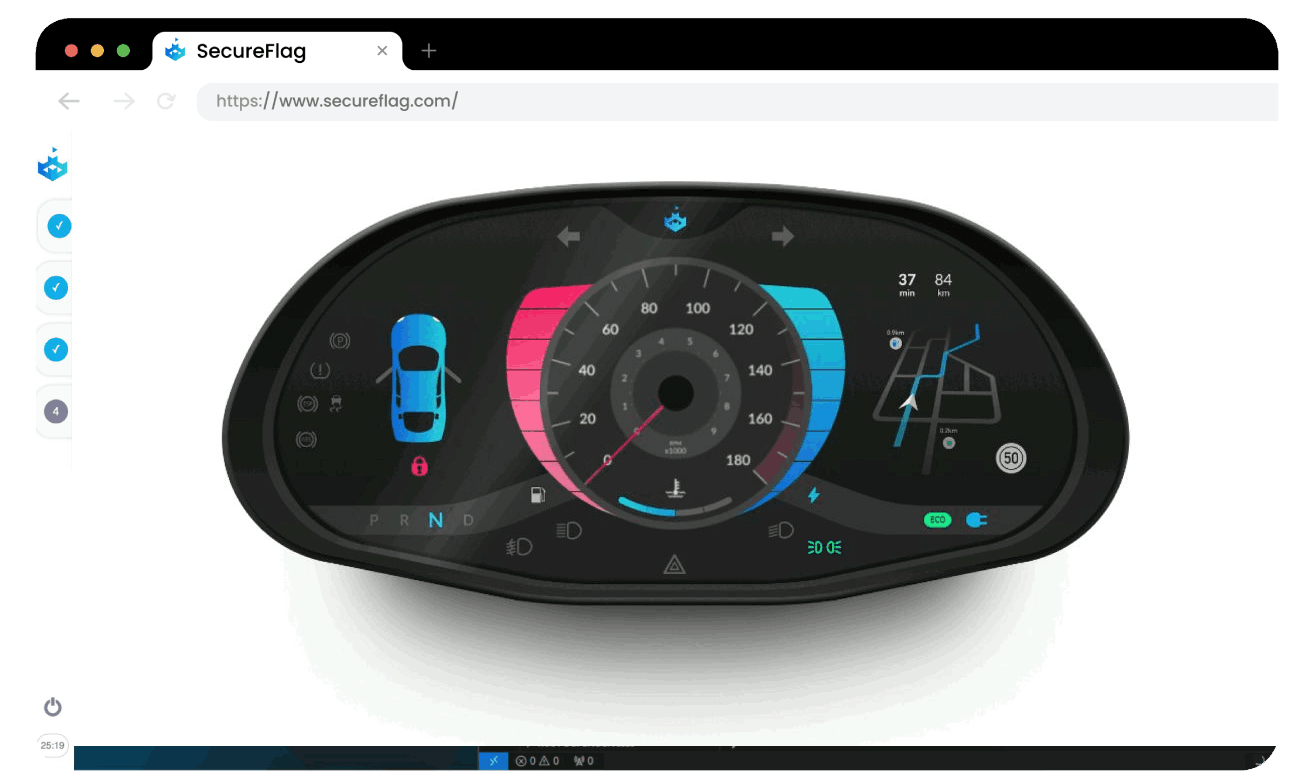Car security used to mean just locking the doors, but that’s all in the past. Nowadays, cars contain technology like sensors, wireless connectivity, and software that manage everything from navigation to engine diagnostics. That’s great for convenience, but it also means vehicles are now major targets for cyber threats.
To help address these challenges, SecureFlag has launched brand-new automotive labs to improve secure coding skills within the industry. These hands-on labs let you delve into the security of modern vehicle technology, covering topics like CAN, MQTT, over-the-air (OTA) updates, and cloud-based communications.

What’s the Deal With Automotive Cybersecurity?
Modern cars transmit data to each other, cloud services, mobile apps, and even the mechanic’s diagnostics system. All this communication happens over different protocols, some of which were never designed with security in mind.
If attackers find a way in, they can interfere with vehicle functions, tamper with cloud data, or even take control of certain systems. Not ideal. Our labs teach you how to find and fix vehicle security issues, keeping them safe on the road.
What Are SecureFlag’s Automotive Labs?
Training with SecureFlag gives you the coding skills necessary to keep vehicles secure. These labs provide developers and software engineers with practical experience to protect vehicles from cyberattacks.
The labs focus on the most important areas of automotive security and ensure you’re ready to take on the challenges presented by new and changing vehicle technologies. They will help you understand the vulnerabilities within these systems and how to secure them effectively.
Some labs have a car dashboard that mimics real vehicle systems, letting you interact with live data, monitor communications, and test security techniques in a dynamic environment.

What You’ll Explore in the Automotive Labs
The labs focus on some core technologies that are central to vehicle systems.
CAN (Controller Area Network)
CAN is a communication protocol that has been around since the 1980s and is still a main part of modern vehicles. It lets different Electronic Control Units (ECUs) talk to each other without needing a central computer. It’s simple, reliable, and widely used, but it wasn’t built with security as a priority. That means attackers can exploit vulnerabilities to manipulate vehicle functions, access sensitive data, or even disable critical systems.
Our automotive labs cover these risks with scenarios where, for example, a flaw in CAN could let attackers disrupt communication and cause system failures. By exploring these threats and learning how to secure CAN-based systems, developers gain the skills needed to protect modern vehicles from cyberattacks.
MQTT (Message Queuing Telemetry Transport)
MQTT is a lightweight messaging protocol that’s big in the Internet of Things (IoT) world, and it’s becoming more common in cars too. It helps vehicles send data to the cloud for things like real-time diagnostics, fleet tracking, and driver behavior analysis.
Unfortunately, MQTT’s simplicity also brings security risks. A lot of the time, data is sent unencrypted, meaning attackers could intercept or interfere with it. Our automotive labs teach you how to lock down MQTT communications, protect data integrity, and set up encryption to keep sensitive information safe.
Cloud-Based Communications and Diagnostics
All the major cloud providers offer IoT frameworks, such as AWS and Google Cloud. They are designed to support and manage many aspects of IoT, OT, and automotive remote features, including OTA updates and fleet operations.
With more vehicles connecting to the cloud for diagnostics, securing cloud communications is essential. Cloud connectivity makes real-time tracking and software updates possible, but it also opens the door for cyber threats like unauthorized access, data breaches, and man-in-the-middle attacks.
The labs look into these risks, such as showing how attackers can exploit weak cloud connections and how to defend against them. In learning how to identify and prevent certain kinds of vulnerabilities, developers gain the skills to keep cloud-connected vehicles secure.
What Sets SecureFlag Apart?
Ever sent a real CAN message to crash a diagnostic component? Or hacked a cloud service to compromise an entire fleet of connected vehicles? With SecureFlag’s automotive labs, you get to explore these real-world security risks in a hands-on environment (but one that’s controlled and isolated).
What makes SecureFlag’s labs different from traditional training is that they are interactive and practical. Instead of just reading about security risks, you get to explore lifelike scenarios and apply what you learn.
After you work through each exercise, you’ll build the confidence and skills needed to address security vulnerabilities in modern vehicles.
Safeguard Vehicles With SecureFlag’s Automotive Labs
As cars get smarter and more connected, cybersecurity has to be a top priority. It’s not just car manufacturers that need to worry about security anymore, but everyone working with modern vehicle technology.
SecureFlag’s labs for automotive security are the perfect way to get experience with the real threats facing vehicles, and more importantly, how to stop them. From securing CAN communications to protecting MQTT data and locking down cloud-based diagnostics, these labs give you the skills to keep vehicles safe from cyberattacks.


